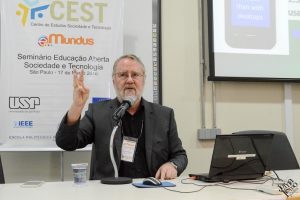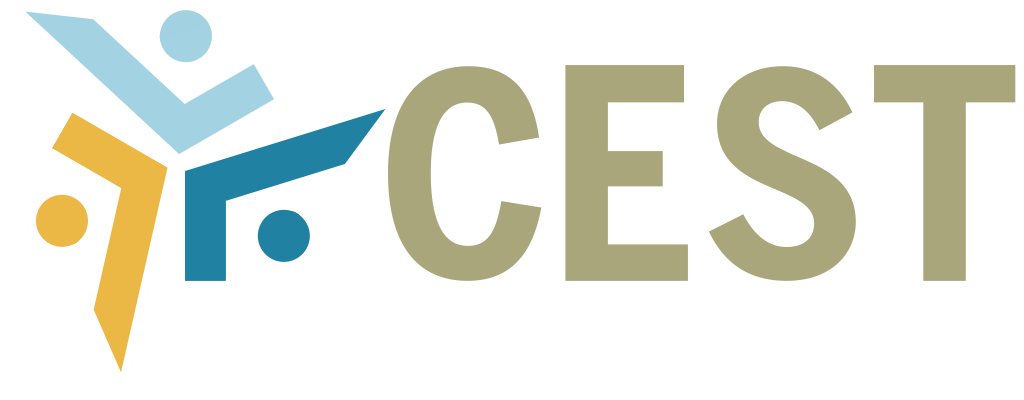UNESCO specialist and professor of Athabasca University, Canada, Rory McGreal, defends that didactic contents should be online
“God is beside open education”, stated UNESCO member Prof. Rory McGreal, during the seminar eMundus – Open Education, Society and Technology, held at POLI-USP (School of Engineering of the University of São Paulo), and promoted by CEST (Study Center Society and Technology), on March 17, 2016. Professor McGreal tells us that Saint Paul (São Paulo), a Christian man, was the precursor of open education, since he used to send his epistles to several places in the world with the purpose of promoting mass education.

Teaching at a University where classes are mostly given online, Prof. McGreal points out how important distance education is in the current situation. According to him, technology is no longer a mere tool; technology came to change our modus vivendi deeply and meaningfully. For instance, the price given to a product takes into consideration the entire knowledge applied onto its production and the entire technology that permeates its functions.
“Unlike what most people think, the world economy is not based on oil or any other things we believe they are, but on information bits. For instance, when we buy a barrel of oil, we buy the whole knowledge invested in its extraction and refinery. Oil itself does not do anything”, says Prof. McGreal.
Outlined this scenario, Prof. McGreal goes back to the imminent necessity of mass education. Once the world is linked to our cellular phones, the didactic content should be adapted to such reality, which faces two barriers: the quite creationist view that we have of education, and the commercialization of teaching materials.
The first consist on the analogy made by Prof. McGreal, for there is no proven scientific reason that classroom lectures are de facto superior to open education. However, there still is a lot of prejudice towards it. The second implies legal issues. Digital materials, such as, e-books, impose a series of rules onto the consumer, such as, the regional material cannot be changed, material expiration, or even the fact that it cannot be shown to others, which is contrary to the need of communicating and sharing education. Any of these actions is considered a crime in countries like the USA.
The final appeal is that education should be adapted to the reality it is inserted into. Prof. McGreal shows the platform online OERcommons, created in Canada and pioneer in hosting the MOOCs, the English abbreviation for Massive Online Open Course. Anyone who wants to access the site content can request the University of Athabasca with no problems or complications.
Text by Maria Beatriz Barros, from Journalism Junior of ECA – School of Communication and Arts – USP.
 English
English Português
Português
